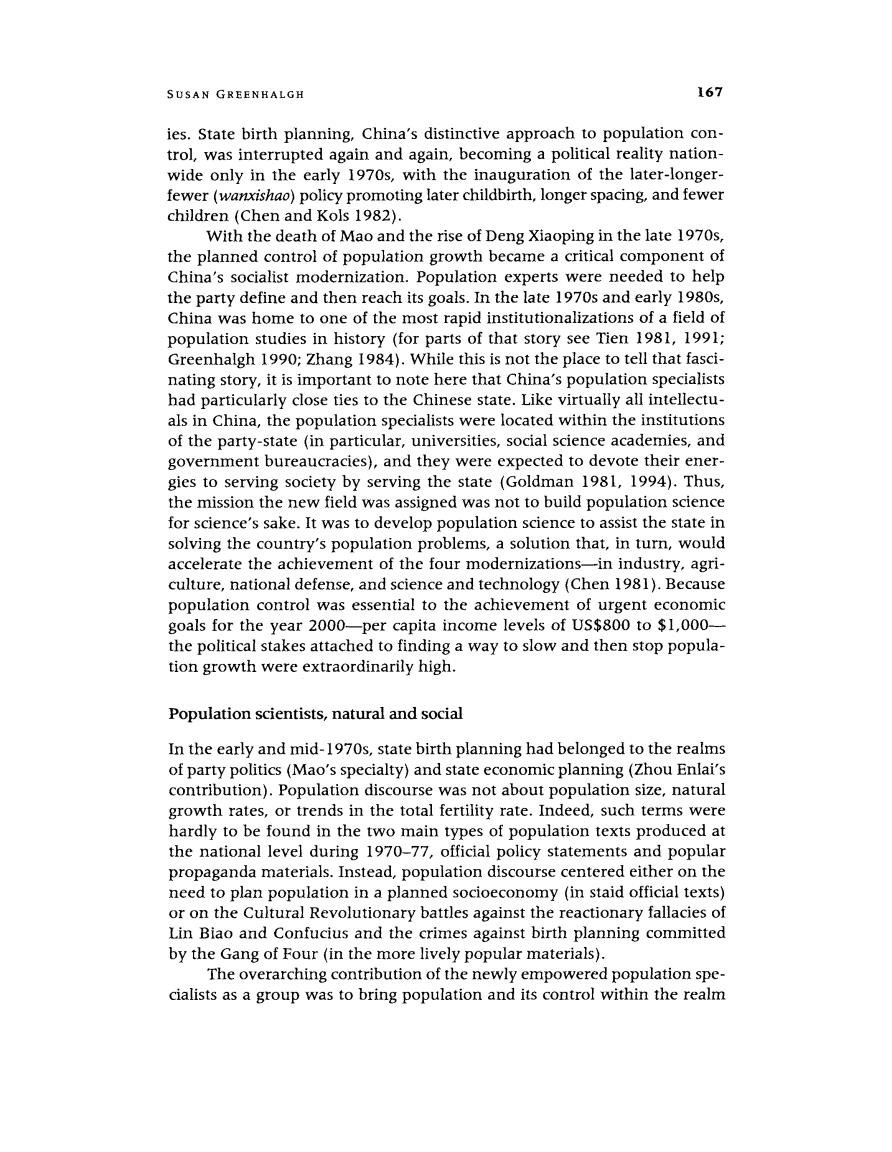正在加载图片...

SUSAN GREENHALGH 167 ies.State birth planning,China's distinctive approach to population con- trol,was interrupted again and again,becoming a political reality nation- wide only in the early 1970s,with the inauguration of the later-longer- fewer(wanxishao)policy promoting later childbirth,longer spacing,and fewer children (Chen and Kols 1982). With the death of Mao and the rise of Deng Xiaoping in the late 1970s, the planned control of population growth became a critical component of China's socialist modernization.Population experts were needed to help the party define and then reach its goals.In the late 1970s and early 1980s, China was home to one of the most rapid institutionalizations of a field of population studies in history (for parts of that story see Tien 1981,1991; Greenhalgh 1990;Zhang 1984).While this is not the place to tell that fasci- nating story,it is important to note here that China's population specialists had particularly close ties to the Chinese state.Like virtually all intellectu- als in China,the population specialists were located within the institutions of the party-state (in particular,universities,social science academies,and government bureaucracies),and they were expected to devote their ener- gies to serving society by serving the state (Goldman 1981,1994).Thus, the mission the new field was assigned was not to build population science for science's sake.It was to develop population science to assist the state in solving the country's population problems,a solution that,in turn,would accelerate the achievement of the four modernizations-in industry,agri- culture,national defense,and science and technology (Chen 1981).Because population control was essential to the achievement of urgent economic goals for the year 2000-per capita income levels of US$800 to $1,000- the political stakes attached to finding a way to slow and then stop popula- tion growth were extraordinarily high. Population scientists,natural and social In the early and mid-1970s,state birth planning had belonged to the realms of party politics (Mao's specialty)and state economic planning(Zhou Enlai's contribution).Population discourse was not about population size,natural growth rates,or trends in the total fertility rate.Indeed,such terms were hardly to be found in the two main types of population texts produced at the national level during 1970-77,official policy statements and popular propaganda materials.Instead,population discourse centered either on the need to plan population in a planned socioeconomy (in staid official texts) or on the Cultural Revolutionary battles against the reactionary fallacies of Lin Biao and Confucius and the crimes against birth planning committed by the Gang of Four(in the more lively popular materials). The overarching contribution of the newly empowered population spe- cialists as a group was to bring population and its control within the realm